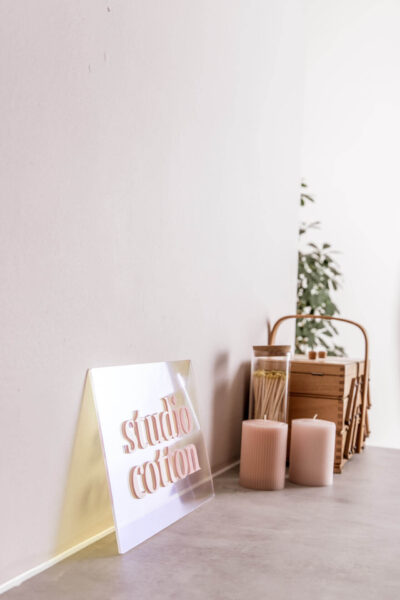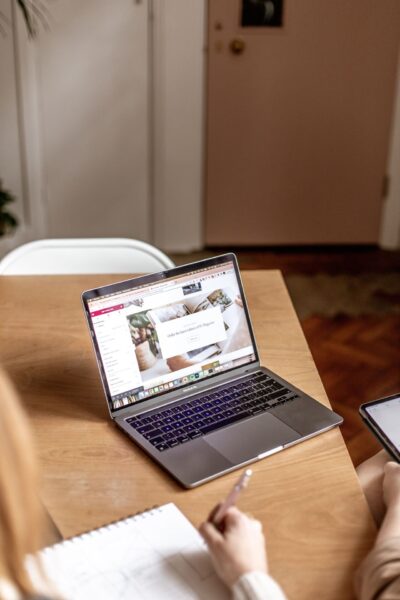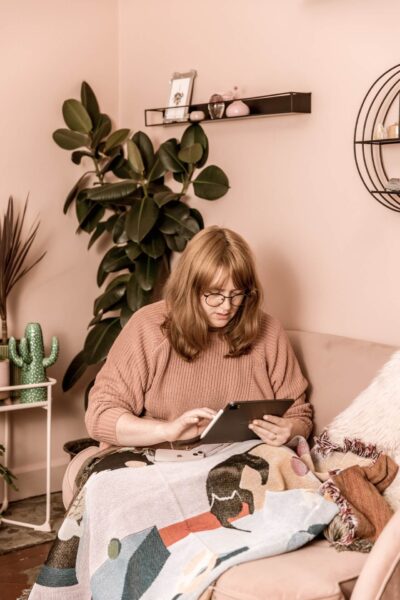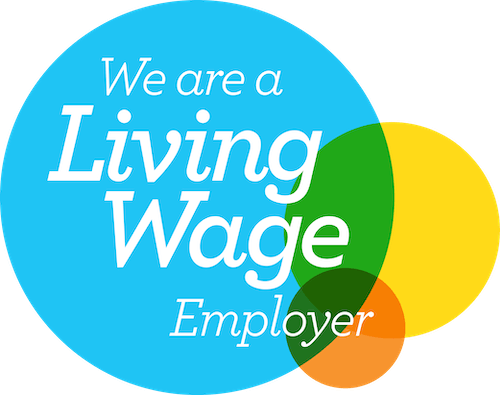**Please be aware that I published this post before the Prime Minister’s briefing on 16 March 2020. As I type, more information and measures are being released. I’ll look to update this post as soon as I can, but it looks like some of my advice may be out of date already**
—
I can’t think of a blog subject that has caused me more internal debate than the current COVID-19/coronavirus pandemic and its impact on small businesses. I didn’t feel it was my place to say anything; I am by no means close to an informed healthcare professional, and didn’t want to add to the mire of terrible and dangerous advice circulating everywhere.
I am also fully aware that compared to many other small businesses, the impact of the coronavirus crisis on Studio Cotton appears to be pretty small. The wonderful humans who make up my team are not in the most vulnerable groups, and everyone is able to work remotely – including our wonderful photographer/client executive Weronika who enjoyed an unexpectedly extra-long visit to Poland after flights home were grounded.
We’ve cancelled our in-person workshops from our studio at 48 Corn Street, and moved all meetings and consultations online. The team is in full force working from home, and Alex is slowing getting used to how much I talk to everything at my desk, including greeting my cup of coffee because hey, it doesn’t hurt to have manners.
Studio Cotton is in the minority. Sadly, so many of my favourite small businesses are seeing much stronger effects. From customers reluctant to make purchases based on their own uncertain financial circumstances, to abandoning local high streets for fear of transmitting or catching the virus.
Sure, more small business shoppers may turn to online shopping during periods of isolation, but the truth is that that number will unlikely equal the number who would have shopped anyway. Whats more, it’s hurting those with physical premises hardest – and as it stands, some business rates, rent, service charges, and staff costs still need to be paid by the business even when their shops, restaurants, and cafes are taking a massive hit on visits.
As a small business owner, I’ve struggled to know what to say under the circumstances, and whether to say anything at all – and I know you have too.
So here’s my advice on how a small business can communicate during the coronavirus pandemic. Please do bear in mind that this is just my opinion as a small business communications expert, you do not have to follow my recommendations – but hopefully it helps guide you towards a message that works for your business.
Do not share any health advice or tips outside of the official channels
As small business owners, it’s not our job to provide advice on healthcare. We may feel like by sharing advice that sounds sensible, we are doing our part – but it can cause more damage to the population, which is irresponsible.
This includes dangerous recipes for DIY hand sanitiser, instructions on how to crochet your own face mask, and home ‘cures’. Small businesses have a level of authority within their community, and you may inadvertently worsen the situation with well-meaning but possibly ill-informed tips.
If you would like to share advice, maybe look at interesting ways to bring attention to the official guidance from the NHS or gov.uk, or the equivalent in your country.
I’m sure many of us have seen this graphic, produced by the BBC to communicate official NHS advice. If you are an excellent graphic designer looking to help spread accurate coronavirus information, it might be worth creating your own illustrations to bring attention to official advice.
Do not try and monetise the current situation
Even though the majority of businesses will be negatively impacted by the coronavirus pandemic, some will see an uptick in purchases – like toilet roll manufacturers. That is to a degree, unavoidable.
What is avoidable is thinking, “ok, how can my business make more money from the current situation?”.
It is ok for your small business to profit from the coronavirus crisis, but actively seeking to gain financial benefit on the back of a serious contagious illness is immoral and uncouth – and your customers will notice.
If your customers get the impression that your business is taking advantage, exploiting the public panic, or spreading information solely for your own profit – that is an impression which is unlikely to be shead.
Trying to make a quick buck now could cause longterm damage to the reputation of your small business.
Do not trivialise the coronavirus crisis
I think we’re all becoming more aware of how many people in our lives fall in to the ‘vulnerable’ group, and even though (as it stands) infection rates are pretty low, I think it’s safe to say that we are hyper-aware of our own mortality, and that of our loved ones.
When sharing communications regarding COVID-19 and coronavirus, remember one thing: some people are dying. Be sensitive to society’s genuine worries, and be tonally appropriate for current circumstances.
Even if your brand’s signature tone of voice is ruddy daft (and mine is really ruddy daft), remember that you are communicating on behalf of a business, and it’s not your job to provide light comic relief.
Inform, inform and inform
Lots of businesses are closed, and even more have introduced temporary measures to help do their part in preventing the spread of disease.
If your small business is still open, let your customers know. Many members of the public may assume their local high street is closed because the only messages they’ve heard from your neighbours is “we are closed”.
Reassure your customers that your business is taking coronavirus seriously
When I advise on how to pick the brand messages a small business should be sharing on social media – I always start with “what could be stopping your customers from buying from you today?”. Usually that’s easy stuff, like they don’t know that you are based in Bristol, or that they don’t know you sell Mother’s Day presents.
Brand’s messages like “we take health and safety seriously” are usually pretty low down on the priority list – but right now that’s all a lot of the public are thinking about.
Make sure to regularly and sensitively demonstrate what your business is doing to make sure customers have a healthy and safe experience with your small business.
If your business solves a genuine problem, let your audience know
Like I said earlier, some businesses will profit from the coronavirus pandemic, and as long as you are not looking to exploit the situation, it’s ok to share useful information related to products you sell and services you provide, when done sensitively.
My local supermarkets are completely out of flour, pasta and rice. Nobody wants to induce panic buying, but if you sell flour, pasta and rice – people still need to buy flour, pasta and rice, and you can solve that problem.
Just be sensitive. Do not drop in to your local Facebook group with:
“Getting down about a lack of pasta? My Shop has you covered. Buy enough to get through self-isolation with our jam-packed shelves of pantry staples!”
Instead, try something like:
“We hope everyone in our lovely community is coping as best they can given the current circumstances. We in no way want to contribute to the current panic-buying culture, but have heard that lots of local families are struggling to find basics for their kitchen cupboards. My Shop is currently well stocked with pasta, rice, and ingredients, and will be open until 7pm today. We are currently limiting the number of customers in the shop at the same time, and asking all visitors to wash their hands – but we don’t want to see anyone go hungry. Stay healthy everyone.”
It is definitely ok to say nothing
If your business has nothing to add, nothing to say, or nothing to do with coronavirus – you don’t need to share anything at all. Don’t feel obliged to share your opinion, your personal story, or your solution because it feels like everyone else is. You can continue with business as usual, you can certainly say that you hope everyone is doing ok, and you don’t have to do any more than that.
How to support a small business
Now this last point is a little Aime-specific, and definitely something that irks me specifically. Instagram and Facebook often get flooded with small biz meme-able posts, like my personal nemesis – the happy dance post. Over the weekend and today I’ve seen the latest circulation, with different ways to support businesses through the current situation.
- ‘Like their posts’
- ‘Leave a comment’
- ‘Share their pics’
I know this post only comes from a place of pure love and kindness – but sometimes we need to be brutal – the best way to support small businesses is to buy from them. Comments and likes are lovely but they do not pay rent; shares will induce happy dances but will not cover costs.
Even though it probably feels it, the world hasn’t stopped turning. It’s Mother’s Day on Sunday, it’s probably your Aunty Geraldine’s birthday soon, and the lovely no-waste shop around the corner still has your favourite cornflakes for sale.
Next time you shop, shop small.























